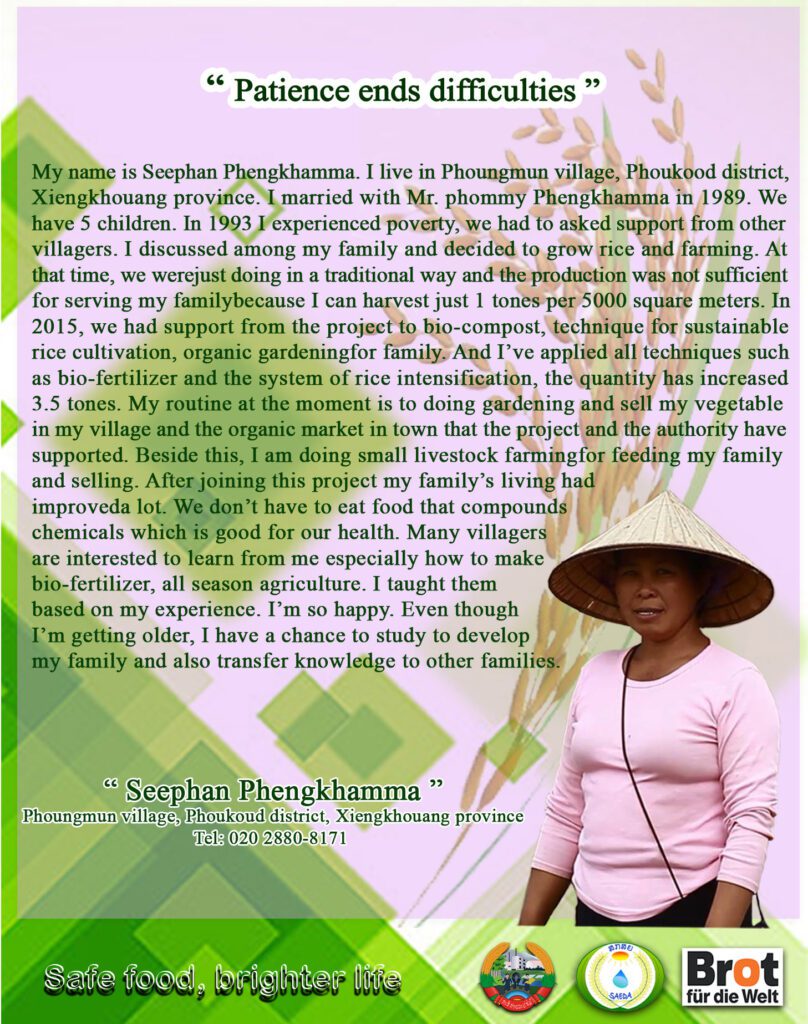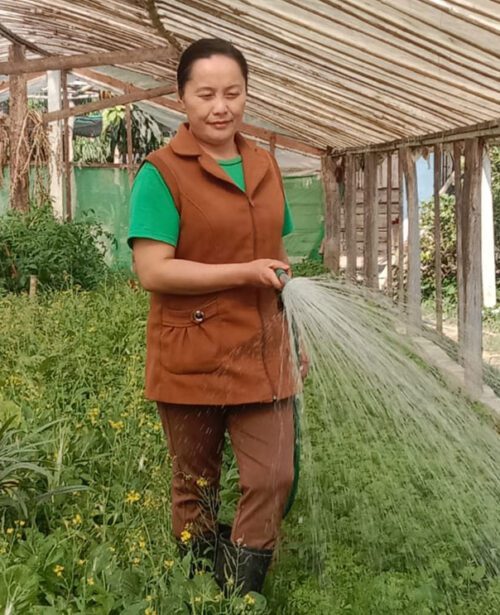““My family was trapped in poverty,” shares Laryer Law, a 27-year-old farmer who previously worked knitting Moung patterns. Facing job insecurity, she earned between 300,000 to 500,000 kips a month. At roughly USD14 to USD24, it was not enough for her family to live on.
Like Laryer, Seephan Phengkamma experienced poverty, and would need help from her village. While she practiced traditional farming, her 5,000 sqm farm could only produce a tonne, which was not enough to live on.
Laryer comes from Yone village in Paek district in Xiengkhouang province while Seephan comes from the villlage of Phoungmun in Phoukoud district, two of the five districts in Xiengkhouang province where Sustainable Agriculture and Environment Development Association (SAEDA) and Bread of the World launched the province-wide Commercial Organic Farming and its Institutionalisation (COFI) program to help improve the income of smallholder farmers and provide them with better access to market opportunities.
Armed with knowledge and skills that she received from SAEDA on how to grow organic vegetables during wet and dry seasons, Laryer decided to cultivate a small piece of land at first. Even if there was no one to help her, she received vital support from the project staff and the agricultural and forestry technical officer from the Paek District Authority and realized that the work did not require much labor. She found the techniques intuitive, the cost of production low because she makes her own inputs, and over time the soil became fertile, enabling her to expand her cultivated area to 1,300 sqm. Seephan in turn learned sustainable rice cultivation (SRI), organic gardening, and the production of bio-fertilizer, which led to her previous yield increasing to 3.5 tonnes.
Today, both Seephan and Laryer are model organic farmers whose quality of life has improved because of what they learned and are eager to share their knowledge and experience with more farmers as well as their neighbors so that they can grow food all year round. Seephan can confidently feed her family with her harvest not only because of improved yield but also because she believes organic produce is good for their health and would rather not eat chemically grown food. She sells the surplus from her harvest at the organic market that SAEDA established as part of the COFI program.

Laryer in turn has been able to multiply her monthly income, earning daily what she used to make in a month by selling organic vegetables at the market that SAEDA supports. Trusted by farmers, she sits on the board of an organic farmers’ organization and trains other farming families in her own province and other provinces, including interns from other countries. She plans to expand her organic land cultivation to be able to support the growing farmers’ group and increasing demand of customers looking for safe food to eat.
(The stories of Laryer and Seephan are adapted from the “10 Model Farmers on Organic Agriculture”, with permission from Sustainable Agriculture and Environment Development Association.)”


